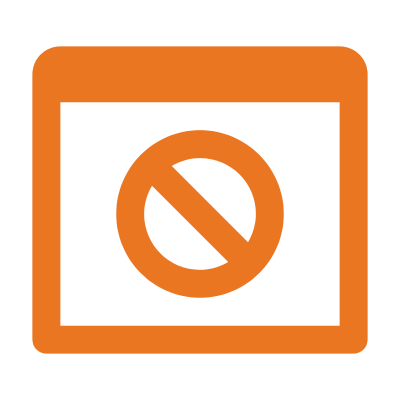Table of content
When people think about the Netherlands – a diverse collage of images comes to mind. From colorful tulip fields to picturesque windmills, postcard-like towns to vibrant Amsterdam, the country has a lot to offer to the tourists that it hosts in plentiful every year. Its deep history and fascinating traditions are behind its strong standing of one of the most popular destinations for travelers from all over the world.
On top of that, the Netherlands is a proud home to one of Europe’s strongest economies. Being one of the oldest members of the European Union ( EU), it both enjoys the market of the entire region and the reputation of one of Europe’s most reliable and successful traders. All of the aforementioned factors combined have led the Netherlands to be named as the world’s 17 largest economies – a title that illustrates just how quickly the Dutch national economy develops and expands.
Considering the overall state of the country, it does not come as a surprise that Forex trading in the Netherlands is considered to be one of the most lucrative, and one of the safest, both in Europe and in the world. Below we will provide you with an overview of the FX market in the Netherlands, legal bodies that are responsible for its regulation and broker licensing, and will provide you with a list of the top Dutch Forex brokers.
Which brokers made it on our list?
We are well aware of how difficult it is for both the beginners and the experienced traders to navigate the variety of brokers and find the one that best suits their needs. As mentioned above, the economy in the Netherlands is thriving, and the choice of the top Dutch Forex brokers can come across as overwhelming due to its great variety. In order to make the process of choosing the right brokerage in the Netherlands a bit easier for you, we have conducted a comprehensive assessment of all the options available and collected our findings into the list that you are about to see below. We sincerely hope that our guide will come in handy for when you will be ready to make a choice of the broker that is right for you.
Forex trading in the Netherlands – Continuous oversight
Dodgy activities and blurred operation lines have not been, for a long time, a surprise to those who knew anything about the world of FX trading. In order to prevent them from occurring, and in compliance with the standards issued by the ESMA, the Dutch AFM has added regular audits and reports as a necessary requirement for the brokers who wish to be licensed with it.
The body requires brokers to submit a regular, periodic report of all operations that the broker has conducted, as well as the information on its success rate, customer base statistics, and many more. One good example of the level of reviewing that the Forex trading brokers in the Netherlands have to abide by is the requirement to make AFM aware if the broker’s issued capital has fluctuated from more than 1% three months prior. The overall idea of regular reviewing is a great way for the regulatory body in the Netherlands to ensure that the market operates fraud-free and the customers are protected from the scammers that currently multiply in the FX market at a rapid speed.
Implications of the AFM license

Regulating the FX market, although necessary, is often extremely complicated. The reason for that is the necessity to strike the perfect balance between enough regulation to ensure the safety of the customers and not too many limitations that would ultimately hinder the market’s growth. Trading Forex is a risky enterprise, and regulators from all other world are struggling to find this perfect balance all while maintaining the way in which the industry is flourishing.
In the Netherlands, the body that is undertaking this difficult task is Autoriteit Financiële Markten or AFM, which was created instead of the outdated Securities Board of the Netherlands in 2002. The body is completely autonomous, however, it does fall under the authority of the Dutch Ministry of Finance. Its administrative functions include overseeing the proper operation, safety, accessibility, and confidence in all markets related to investment, loans, savings, and insurance. Thus, by definition, the AFM is directly responsible for regulating Forex trading in the Netherlands.
When the AFM has officially launched its operations, some significant changes to the FX market regulatory measures were introduced. Although the new set of regulatory rules and conditions are much longer and significantly restricted than those of the previous body, in the long run, they proved to be much more successful in establishing and sustaining the security and gradual growth of the market. We will now provide you with a brief overview of what such measures encompass.
How firms obtain this license?
The process for brokers wishing to obtain a license in the Netherlands is not significantly different from those of the other countries within the Eurozone. The regulatory measures and conditions required for being license are, indeed, quite strict, but are by all means justified and in line with the conditions put forward by the European Securities and Market Authority ( ESMA). Moreover, such strict conditions are crucial to ensuring that the Forex trading brokers in the Netherlands are operating in the best interests of their clients and do not compromise the overall state of security and transparency of the Dutch FX market.
The conditions of getting an official AFM license for brokers based in the Netherlands are fairly straightforward. To the contrary, the procedure for brokers based elsewhere is drastically different and can be quite complicated. First and foremost, foreign brokerages need to obtain hosting for their physical office in the country, as well as ensure that all the accompanying services are secured and provided by the local bodies. However, there is one condition that might make it slightly easier for foreign brokers to begin offering their services in the Netherlands. Similarly to the rest of the EU countries, it would be enough for them to possess a license from any other EU-based regulatory body to begin trading with Duch citizens, as the requirements and an overall level of strictness of licensing is more or less the same across the Eurozone, and abides by the same standards issued by the ESMA.
Most popular fund protection measures among Dutch brokers
Negative balance protection
This particular condition is definitely common among the regulatory bodies across Europe. What it encompasses is making sure that after the trading session, the trader does not end up indebted to the broker as a result of a big loss. Now, it would take a major unfortunate event to cause such significant losses, however, there is one common scenario that often ends up with exactly what we have just described.
One of the largest attractions to traders from all over the world is the provision of leverages. What it means is that the trader can utilize a large number of funds for the session without having to actually deposit them. While this may ultimately elevate the returns, it can also result in the trader losing more money then they invested, leaving them to repay that additional money to their broker. Such a notion has long made regulatory bodies wary of the leverages and forced them to single out an effective measure to prevent customers from undergoing such an unfortunate process.
All of the top Dutch Forex brokers are forced to abide by this condition and protect the finds of their traders. Moreover, such measure contributes greatly to the overall stability and security of the FX market.
Segregation of funds.
Another important and common way of protecting the brokers’ clients is requiring the former to keep their own funds away from those of their traders. This particular measure is just another step toward the overall security of the customers and their respective financial properties. More often than not, clients’ funds can be put at risk if the broker goes bankrupt, and only by keeping the operating capital of the brokerage separately, the unnecessary losses of the trader’s money can be avoided. Similarly, by keeping brokerages’ and traders’ accounts separately, the Dutch regulatory body aims to ensure that the risk of misusing client’s funds, whether intentionally or otherwise, is little to none.
Yet again, the best Forex traders in the Netherlands will all be required to adhere to this condition, which means that you can be confident that your funds are well protected from any unfortunate accidents or unforeseen circumstances.
Top Dutch Forex brokers guarantee public awareness
As you may have probably realized by now, the Dutch AFM takes customer’s safety very seriously. For that reason, it does not stop at merely applying certain regulatory measures and licensing conditions upon the local brokers. What the regulatory body also does is keeping the public well informed and aware of the possible scams and of ways to avoid them.
The AFM has a variety of channels to deliver their informative messages, however, their official website is, by far, the most comprehensive one. What you will find there is a detailed breakdown of the potential scam schemes, way to determine them, and how to avoid losing money to them. On top of that, the AFM website provides a list of licensed, and thus, most reliable brokers, which means that before choosing one you can always check if it is included in this list. Top Forex Brokers in the Netherlands go a long way to be recognized and licenses by this body, and it is, therefore, much advisable to choose among those that the AFM deems worthy of being added to this particular list. Furthermore, should you encounter any problems with the brokers licensed by the AFM, the government will be way more likely to assist you in solving them, as opposed to the situation when the trouble has occurred with an unlicensed broker.
Limited trading features

In order to maintain the level of market accessibility and trustworthiness, the Dutch regulatory body also resorts to a number of restrictive measures on the tools of trading that Forex trading brokers in the Netherlands have to offer. To begin with, the binary option is entirely unavailable to the traders who wish to operate in the Netherlands, due to the high risks associated with it. Similarly, trading Contracts For Difference (CFDs) is also regarded as a risky enterprise, and, despite not being officially banned, the brokers that provide them are faced with strict regulations.
For example, no marketing and promotion of CFDs are allowed, and the brokers that offer such trading options are required to accompany it with honest statistics on how many trades actually managed to succeed in it, as well as making a clear disclaimer of the risks that it involves. Finally, every broker, including the top brokers in the Netherlands is faced with an obligatory cap on the leverages they provide to their traders. This is yet another attempt of the EU regulatory bodies to reduce the risks that are often associated with using leverages. In the Netherlands, leverage limitations depend heavily upon the type of product that they are offered with. For example, some of the most common, and thus, less risky pairs can come with a leverage of 30:1, more or less reliable commodities can have a leverage of 10:1, others, riskier ones will have one of 5:1, and cryptocurrency will come with a maximum of 2:1.
Can you start trading with Dutch brokers?
In the Netherlands, any one of the legal age and abiding by the specific requirements issued by each individual broker can start trading Forex. When it comes to the costs of doing that, we can say that it is absolutely free of charge. What we mean by that is that there will be no specific costs or fees associated with the process of joining a Forex trading broker in the Netherlands. You will, however, be required to make an initial deposit, which will also vary depending on the broker of your choice, with anything between the minimum of 5 USD and a total of 500 USD.
Key discoveries with the best Forex brokers in the Netherlands
Having conducted a comprehensive overview of the Forex trading in the Netherlands, we are happy to confirm that it can be easily recommended to both beginners and experienced traders alike. The state of the national economy is extremely promising, as it is both stable and gradually expanding, which means that the opportunities for lucrative profits that it offers are plentiful.
The regulatory body in the Netherlands is doing an amazing job of both facilitating the growth of the FX market and maintaining the safety of the customers. Its ever-evolving regulatory measures have resulted in the Forex trading brokers in the Netherlands being regarded as some of the most prestigious ones in the world. If you are already a Dutch citizen, we highly suggest that you look no further and exploit the amazing opportunities that your countries’ Forex trading market has to offer.



